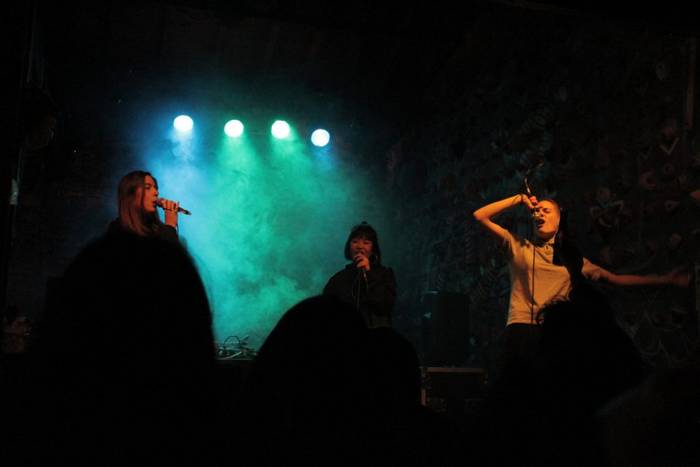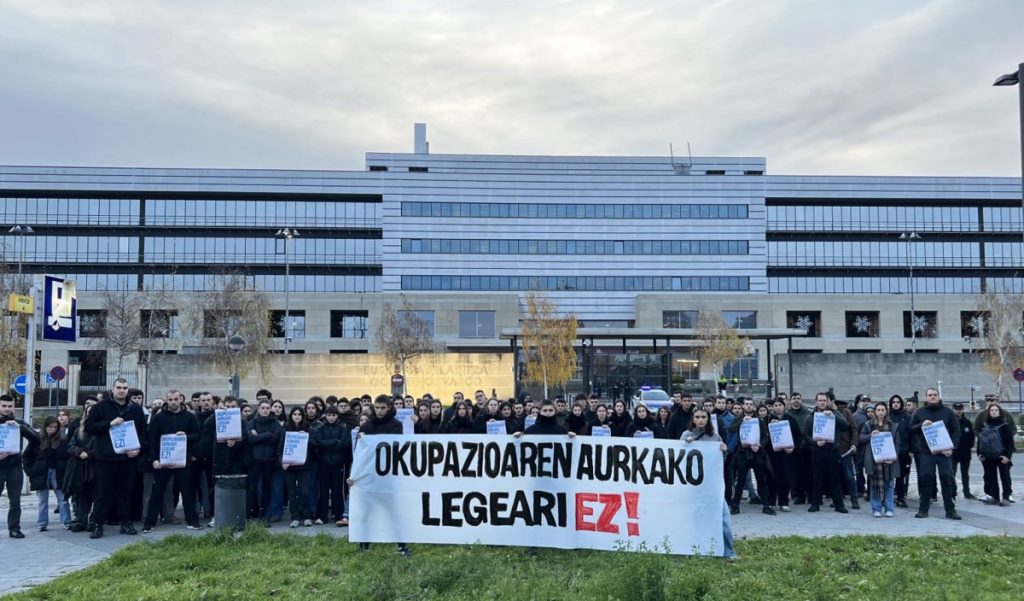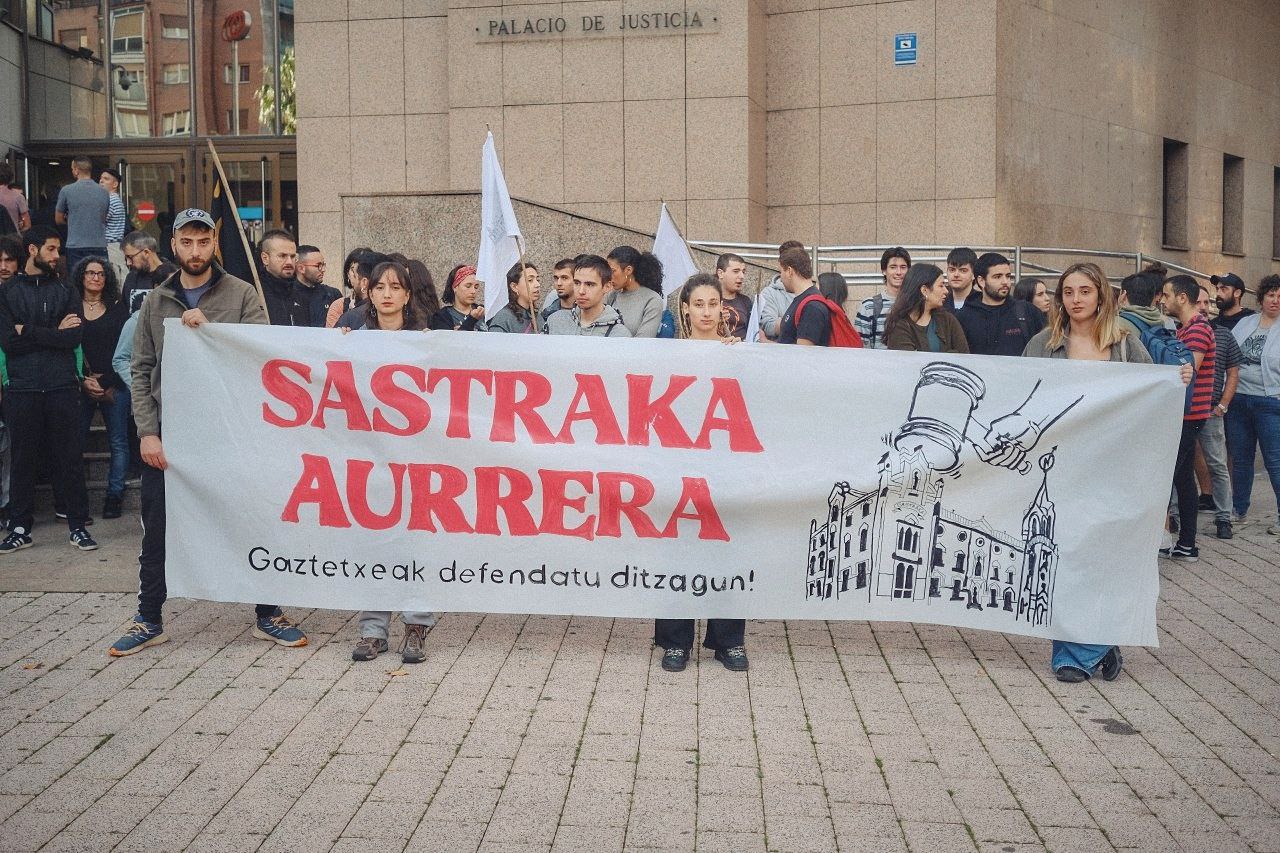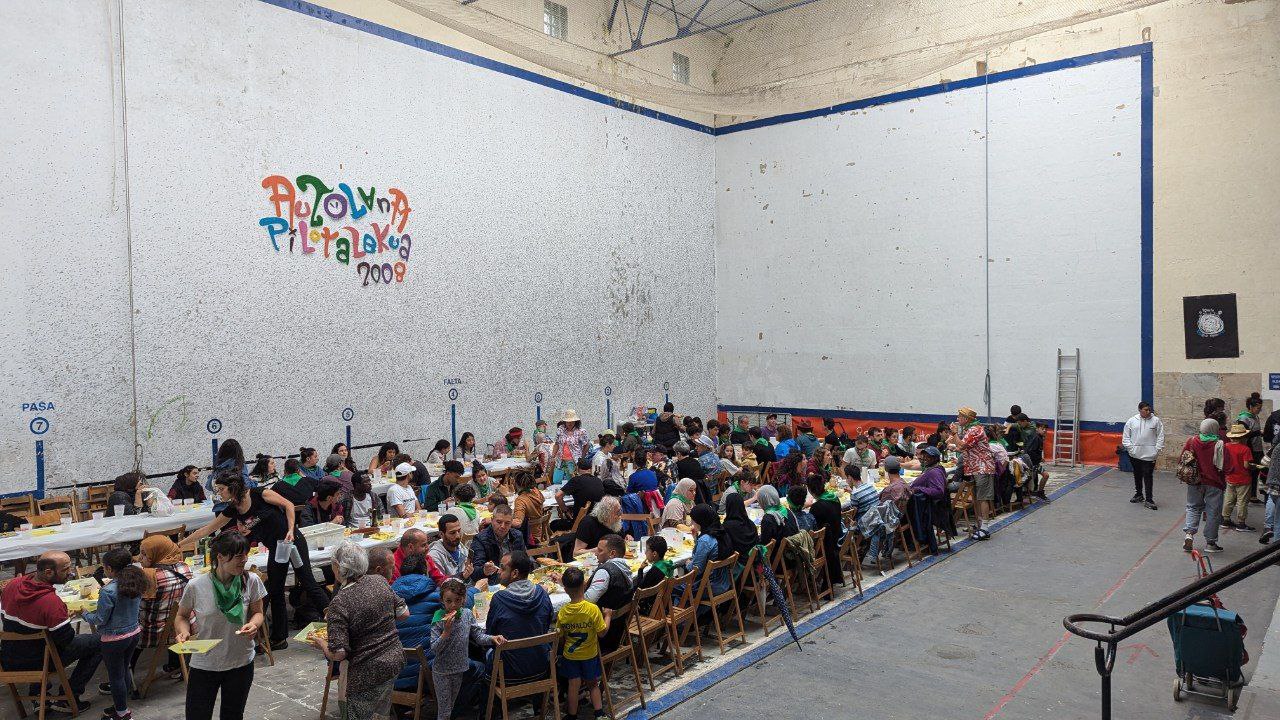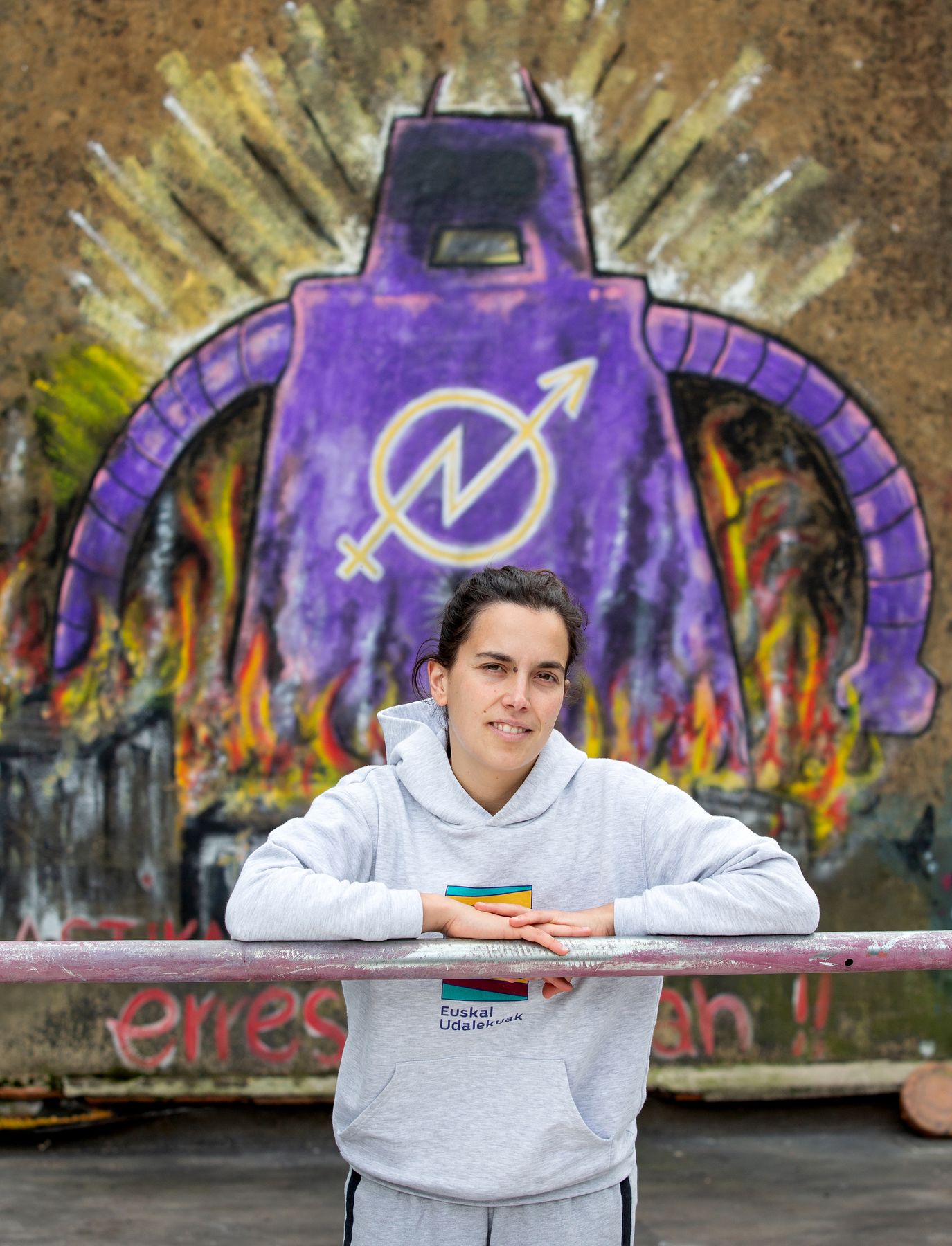"On May 15 we will make Vitoria-Gasteiz orange by occupation"
- On March 18, several movements around the occupation presented the Lehertu Gasteiz dynamic. During the last year, the City Council and the Municipal Police have acted against the occupied spaces of the city and the criminalization of the occupation has increased in Euskal Herria. Faced with this, they claimed occupation as a tool for transformation and the response to the economic crisis. The dynamic will be closed with the demonstration on May 15 in the Plaza de Toros. We have talked about this with Aitziber Romero and Josu Ramos. They have replied in writing to the ARGIA questions.

Who drives the Lehertu Gasteiz dynamic and what has brought you together?
We are the space Lehertu Gasteiz Sumendi, the Youth Emancipation Networks, Gaztetxe, the feminist projects of Talka, the neighborhoods of Errekaleor and the frontons of Auzolana. Each of us has a way of being differentiated, but we have common characteristics. For years the Gaztetxe de Gasteiz has been feeding the cultural and musical offer of the city, that thanks to the Auzolan we have the opportunity to carry out countless activities in the pediment, that we build the free neighborhood Errekaleor that shows that the model of sustainable and rebellious life is a reality, that we denounce the speculation about housing, that we recover the dead spaces and give them life.
Since the outbreak of the health crisis, the City Council and the Municipal Police of Vitoria-Gasteiz have carried out attacks on the occupation movement and the spaces occupied during the last year. What are these aggressions and what consequences have they had?
In the context of the pandemic and under the guise of collective health, they have tried to hamper our political work. The obstacles have undoubtedly been against all popular movements, but during the confinement we have seen evictions of the feminist space Talka and the houses of Herrandarren Street, attempts to limit the use of the Gaztetxe de Gasteiz or Sumendi, persecution against the neighbours of Olarizu, or police provocations in the small night hours of Errekaleor. The examples are many, but they all have the same objective: to destroy political work as an instrument and to violate the right to organize, promoting criminalization.
In recent years the occupied spaces have multiplied in Vitoria-Gasteiz, some have disappeared... What is the current state of health of the occupation movement in the city?
In Vitoria-Gasteiz the occupation movement has always been very present. For leisure, militancy, to build new life models, to weave networks, to guarantee basic rights… we have known in the city okupados spaces of multiple names and forms that have given way to the collective needs of the moment. There are projects that have been maintained over time and that have been finalised. But it is clear to us that the members of the popular movement will fight for the tool of occupation to deal with the current socio-political-economic crisis.
You spoke of a campaign of criminalisation of the occupation, which can go beyond Vitoria-Gasteiz. What is this criminalisation?
We want to highlight two elements. On the one hand, sensationalist news from the media to divert the essence of the problem. To do so, one fact: In 2021, every three days there has been a eviction in Vitoria-Gasteiz. It is barbaric, but the big media – or, unfortunately, those who have the capacity to influence the opinion of the majority of Gasteiztars – did not want to talk about it. On the other hand, there are also companies in the security sector. They are not companies, they are mafias and there is nothing else to do with what greed they have worked in the context of a pandemic.
Within that criminalization campaign, they say that we, the working class, can be victims of the occupation, go out and buy bread and have the house occupied back. But that's not the case.
"We will fight for the tool of occupation to deal with the socio-political-economic crisis"
At the end of April, we saw an area occupied in Abadiño evicted by the company Desokupa, which has its origin at the far right, and we thank the Ertzaintza for their cooperation. The Mayor of Bilbao has announced that he will take a eviction in Bilbao next weekend. Worried?
It has always been something we have seen “from afar”: we saw it on social networks or on television, especially in Madrid or Barcelona. We have collaborated with the local agents and have warned of the danger on more than one occasion, and in the end they have also come to us, or are trying to do so.
The cooperation of the police with these fascist groups did not come as a surprise to us: We have also seen it in Barcelona, where the Ertzaintza was not going to be an exception. Both the fascist companies and the police – and the police – have the same objective: to be an active part of speculative policies, while the individuals and agents that we organise militarily try to intimidate us. It has become clear that this kind of Mafia attitude has the approval of the Basque Government and other administrations. The mask has been removed, so let us take advantage of self-defence.
You have said that power is using crisis as an "excuse" to deepen the impoverishment of the working class. You have argued that occupation is an alternative to fighting for such impoverishment.
We started the Lehertu Gasteiz campaign with an equation. In this equation we explained the following: In Vitoria-Gasteiz, there are 115,367 homes, of which 9,470 are empty and 2,200 are for sale. In other words, one in 10 homes is empty. At the same time, in Vitoria-Gasteiz we live about 255,000 people and at the moment there are 115,367 homes, which means that there is one housing for every two people. In the meantime, and despite being in the midst of the pandemic that has brought our day to day, evictions, empty houses, rising prices, speculation… are constant.
Housing is a basic right and is not guaranteed. While capitalism – banks, vulture funds, etc. – continues to do business with basic rights, our choice, in capital letters, is OCCUPATION. We understand occupation as an indispensable instrument for living our lives with dignity. The occupation is also a direct bullet against private property.
At the end of March, they presented the dynamic. What initiatives have you taken since then?
Video screenings, cycling marches, talks… we have also taken a space for leisure. In short, we have continued to give life in a more collective and collaborative way to the okupados spaces of the city.
On May 15 you will end the dynamic with a demonstration. What kind of manifestation will you be and what will you claim?
On May 15 we will make Vitoria-Gasteiz orange in favor of the occupation, putting faces, stories, realities to the occupation. We will cry out loud and clear that we will continue to fight for neighbourhoods and a city based on solidarity and we will go out into the street to point out to those who are doing business with our basic needs and rights.











